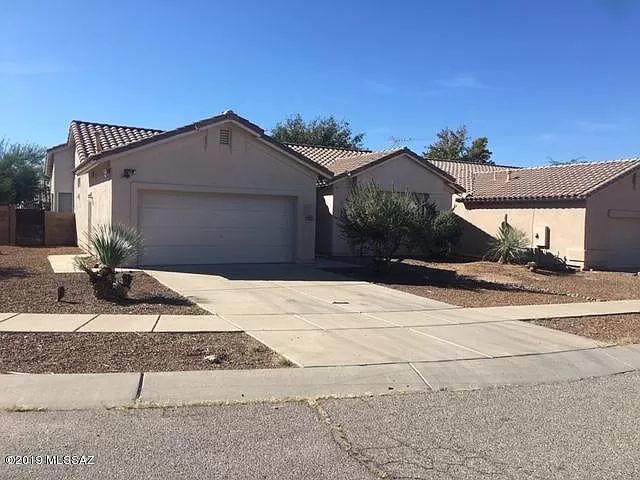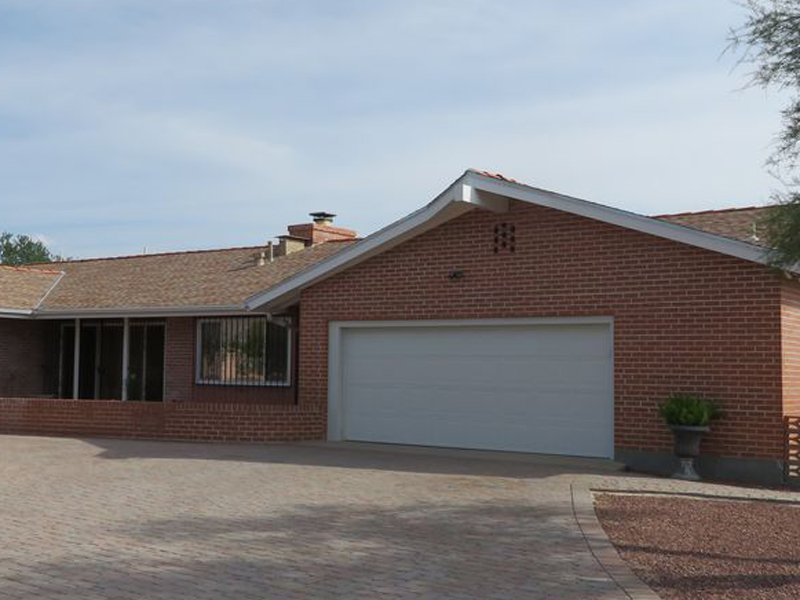Is Your Garage Door Stuck? Here's What to Do Very first
When your garage door won't open up, start with these crucial safety and security checks prior to trying any fixings. Initially, make sure no one is standing near the door and that vehicles are free from the opening. Seek apparent indicators of damage like broken panels, curved tracks, or hanging cords. If you see a snapped spring or significantly harmed parts, stop promptly and call an expert—-- these fixings need specific devices and know-how to handle securely.

Check These 6 Points Prior To Calling a Professional
Before thinking you need expensive repair work, run through this quick diagnostic checklist that solves most garage door issues:
-
Power source: Verify the opener is connected in and the outlet is working
-
Remote batteries: Replace dead batteries in your remote
-
Hand-operated lock: Check if somebody inadvertently engaged the hands-on lock
-
Blockages: Try to find debris obstructing the door's course or sensing units
-
Emergency situation launch: Ensure the red emergency situation cable hasn't been pulled
-
Breaker: Confirm the garage circuit hasn't tripped
These easy checks solve about 70% of garage door issues without needing expert intervention.
10 Usual Reasons Your Garage Door Will Not Open Up
Recognizing why your garage door opener isn't functioning aids you pick the ideal solution. Below are the most regular reasons homeowners experience:
Dead remote batteries represent the easiest solution—-- when batteries pass away, the remote can't send signals to the opener. Power blackouts or tripped breakers reduced power to the motor. Busted springs stop the door from lifting effectively and call for immediate expert interest. Sensor imbalance reasons safety systems to block door procedure. Track obstructions stop rollers from relocating smoothly. Electric motor overload triggers automatic shutoffs when the opener spots resistance. Limit switch problems perplex the opener regarding door setting. Cord damage interrupts the lifting device. Weather-related problems impact door movement during extreme temperature levels. Component wear from age progressively reduces system efficiency.
Problem # 1: Dead Remote Control Batteries
When your wall button works however your remote does not, dead batteries are generally the wrongdoer. Most garage door remotes use either 3-volt lithium or 12-volt alkaline batteries. Eliminate the back cover of your remote and inspect the battery type. Replace with fresh batteries and check the remote. If it still does not work, you might need to reprogram it to your opener. Consult your opener's manual for details reprogramming guidelines, as the procedure varies by supplier.
Issue # 2: Power Supply Issues
Garage door power issues usually stem from loose links or stumbled circuits. Check that the opener is securely linked into its electrical outlet—-- resonance can loosen connections with time. Evaluate the outlet with an additional device to confirm it's functioning. Examine your home's breaker box for stumbled circuits, particularly if you have actually experienced tornados or power changes. GFCI outlets may have stumbled and need resetting. If the opener has power yet will not react, the problem likely lies in other places in the system.
Problem # 3: Broken or Damaged Springs
Damaged garage door springtimes are among the most dangerous components to manage. If you listen to a loud bang from your garage or see the door really feels exceptionally heavy when trying to lift manually, a springtime has actually likely snapped. Torsion springs run flat over the door, while extension springtimes remain on either side. Never ever attempt springtime repairs yourself—-- these elements keep remarkable stress that can cause significant injury or fatality. Expert get more info replacement typically costs $150-$300 however ensures your safety and security.
Trouble # 4: Blocked Safety Sensing Units
Modern garage doors feature safety and security sensors that protect against closure when items are detected. These sensing units can quit the door from opening up if they're unclean, misaligned, or blocked by particles. Clean sensor lenses with a soft fabric and make sure nothing obstructs the unnoticeable beam of light in between them. Examine that sensing units are appropriately lined up—-- a lot of have indication lights that show connection standing. Sensing unit problems typically fix with basic cleansing and modification.
Problem # 5: Track Obstructions or Damages
Garage door tracks guide rollers as the door moves up and down. Dust, particles, old oil, or small items can jam the system. Evaluate tracks aesthetically and get rid of any kind of obstructions with a brush or cloth. Search for damages, bends, or bending that might restrain smooth operation. Minor track changes are possible for helpful homeowners, yet significant damage needs expert repair work to prevent more problems or safety threats.
Problem # 6: Garage Door Opener Electric Motor Issues
When the garage door motor runs yet the door doesn't relocate, several concerns could be liable. The electric motor may be overwhelmed and shutting off as a precaution. Gear wear, especially in older devices, can protect against proper operation. Chain or belt drive issues affect power transmission. If you listen to unusual grinding, clicking, or humming audios, quit making use of the opener immediately. Electric motor repair work commonly cost more than replacement, particularly for systems over one decade old.
Detailed Do It Yourself Troubleshooting Guide
Follow this organized approach to garage door repairing while focusing on safety throughout the procedure:
Action 1: Evaluate the wall surface switch first. If it functions however the remote doesn't, concentrate on remote issues. If neither jobs, inspect power supply.
Step 2: Analyze the manual launch cord. If it's been drawn, the opener is disengaged from the door. Press the trolley back to reconnect.
Step 3: Manually evaluate the door by disengaging the opener and trying to raise the door by hand. It needs to relocate efficiently and stay in area when half-open.
Step 4: Examine noticeable components for damage, paying special interest to springtimes, cables, and tracks.
Tip 5: Examine all security functions including sensors, limit buttons, and auto-reverse features.
Step 6: Examination various controls (remote, wall surface switch, keypad) to separate the problem source.
Always wear shatterproof glass and job gloves when performing assessments, and never ever attempt repair services on springtimes or high-tension components.
When to Call a Specialist vs. do it yourself Solutions

Understanding when to call a garage door expert versus attempting DIY repair services safeguards both your safety and your budget. Manage these concerns on your own: dead remote batteries, power supply issues, small track cleaning, sensing unit cleansing and placement, and fundamental lubrication.
Never try these repairs on your own: spring replacement or change, cord fixings, major track realignment, electric circuitry problems, opener electric motor replacement, or any repair entailing high-tension components. Expert specialists have specialized devices, training, and insurance policy to manage hazardous repair services securely.
Take into consideration repair service costs versus substitute expenses, particularly for doors over 15 years of ages. Modern garage doors use better security functions, energy effectiveness, and dependability than older models.
Emergency Garage Door Solutions
When you're stuck to a garage door that won't open up and require prompt access, follow these emergency procedures:
Guidebook Procedure: Pull the red emergency launch cord to disengage the opener. This enables hand-operated operation however needs correct strategy to stay clear of injury. Lift the door slowly and evenly, using leg muscular tissues instead of your back. Most residential doors consider 100-150 extra pounds, making them workable for the majority of adults.
Short-term Fixes: If the door opens up by hand but will not stay up, prop it open with sawhorses or clamps—-- never utilize your body or lorries as supports. For doors that won't shut completely, make certain the opening is safeguarded if you need to leave.
Emergency situation Service: Numerous garage door firms provide 24/7 emergency situation solution for situations including protection problems, trapped vehicles, or total system failings. While a lot more pricey than normal service calls, emergency repair services supply instant remedies when required most.
Safety and security Warning: What NOT to Do
Garage door security needs comprehending unsafe fixings that must never be tried by home owners:
Never ever try to repair springtimes—-- they save sufficient energy to trigger fatal injuries when they break or are improperly handled. Do not require a stuck door—-- this can harm the opener, tracks, or door panels, producing a lot more pricey troubles. Stay clear of bypassing safety functions—-- sensors and auto-reverse devices avoid serious injuries and residential or commercial property damage.
Don't disregard unusual noises—-- grinding, scraping, or banging sounds show troubles that intensify with time. Never make use of the door if cable televisions are torn or damaged—-- the door might drop unexpectedly. Don't attempt electric repair work unless you're a qualified electrical expert—-- garage door openers use both 120V house current and low-voltage control circuits.

Preventive Upkeep to Prevent Future Issues
Regular garage door upkeep stops most usual troubles and expands system life expectancy substantially:
Month-to-month Jobs: Visual assessment of all parts, examining auto-reverse safety and security functions, examining and tightening equipment, and cleaning tracks and sensors.
Quarterly Jobs: Oiling all moving parts with suitable garage door lubricating substance, screening guidebook operation, and inspecting weather securing.
Annual Jobs: Expert examination and tune-up, spring adjustment if required, and opener maintenance including belt or chain modification.
Seasonal Jobs: Getting ready for weather extremes, checking insulation, and readjusting opener setups for temperature adjustments.
Constant upkeep costs much less than emergency situation repair work and guarantees trustworthy procedure year-round.
Garage Door Won't Open Up FAQs
Why will not my garage door open with the remote however works with the wall button?
This usually suggests dead remote batteries, signal disturbance, or the requirement to reprogram the remote. Check batteries first, after that consult your opener handbook for reprogramming directions.
Can I manually open my garage door if the power is out?
Yes, draw the red emergency situation release cord to disengage the opener, then lift the door by hand. Be gotten ready for the door's full weight and lift with correct method to avoid injury.
Just how do I understand if my garage door springtime is damaged?
Indicators include a loud bang from the garage, the door feeling extremely heavy when lifting manually, visible gaps in the springtime coils, or the door just opening a few inches before quiting.
Is it safe to use my garage door if it will not open up right?
No, partial operation shows mechanical troubles that can intensify instantly. Stop using the door and have it evaluated by a specialist to avoid additional damages or injury.
What should I do if my garage door opens but won't shut?
Examine safety sensing units for blockages or imbalance, analyze the tracks for particles, and test the auto-reverse function. If these do not fix the trouble, consult a specialist.
How much does it set you back to take care of a garage door that won't open up?
Expenses vary extensively depending upon the issue: battery substitute ($5-$10), professional medical diagnosis ($50-$100), springtime substitute ($150-$300), or opener substitute ($200-$500).
Can weather influence my garage door's capability to open?
Yes, severe cold can enlarge lubricants and influence metal parts, while warmth can cause expansion concerns. A lot of issues solve as temperatures normalize, yet persistent issues may need specialist attention.
Why does my garage door open up a couple of inches then stop?
This typically suggests damaged springtimes, restriction button problems, or track blockages. The opener's safety and security features quit procedure when resistance is detected, stopping damage to the motor or door.
Get Specialist Help for Complex Concerns
When DIY repairing does not settle your garage door troubles, professional technicians offer the proficiency and devices required for risk-free, long-term repair work. Qualified professionals detect concerns precisely, utilize manufacturer-approved components, and offer guarantees on their work.
Professional services consist of: detailed system inspections, springtime and cable substitute, opener repair service and replacement, track positioning and replacement, electrical troubleshooting, and emergency situation solution phone calls.
What to expect: ahead of time prices, licensed and insured professionals, same-day service for lots of fixings, and follow-up maintenance suggestions.
The majority of garage door firms provide cost-free price quotes for significant repair work and can give prompt remedies for immediate problems influencing home protection or car accessibility.
Obtaining Your Garage Door Working Again
A garage door that will not open up doesn't need to destroy your day or damage your budget plan. Beginning with easy troubleshooting steps like inspecting power, changing batteries, and analyzing for apparent blockages. Numerous issues have quick do it yourself remedies that restore regular procedure within minutes.
However, acknowledge when professional aid is essential—-- specifically for spring-related issues, electrical troubles, or complicated mechanical failures. Trying dangerous repair services yourself takes the chance of severe injury and usually produces a lot more expensive problems.
Normal maintenance protects against most garage door problems and ensures trusted procedure for years to come. When issues do take place, address them without delay to stay clear of more costly repairs and keep your home's security and convenience. Whether you require a basic battery substitute or complete system overhaul, solutions exist to obtain your garage door functioning efficiently once again.